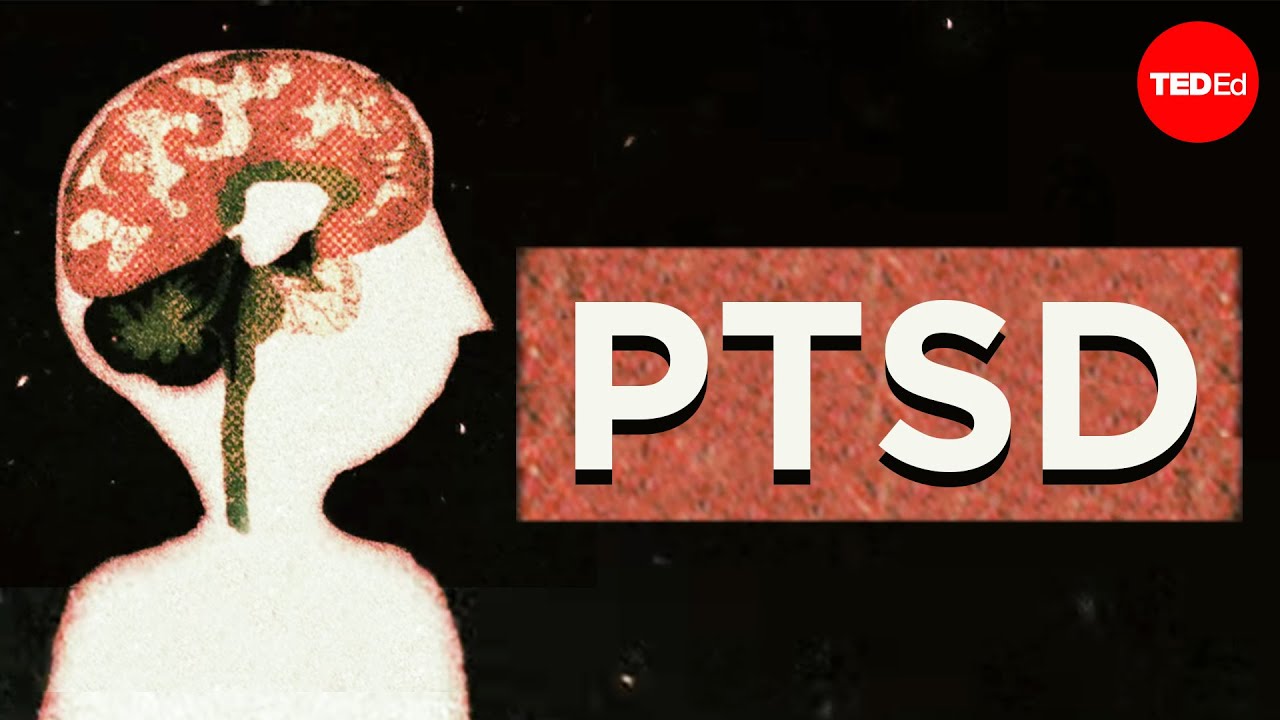Decontextualized Trauma - Concealing It With Behavior
Decontextualized over time, trauma in a person resembles personality. Familial trauma that has been decontextualized over time resembles family characteristics. Decontextualized over time, trauma in a population resembles culture.
Author:Suleman ShahReviewer:Han JuOct 08, 2022225.6K Shares3M Views

Decontextualized traumain a person resembles personality. Decontextualized trauma in a family resembles family characteristics. Trauma among a population resembles culture.
We now know that trauma exists as a result of the last year, but what does it mean to be trauma-informed in your design work? We must identify trauma explicitly before we can respond to that.
What Is Trauma?

The psychology of post-traumatic stress disorder - Joelle Rabow Maletis
Trauma is the reaction to a profoundly upsetting or upsetting incident that overwhelms a person's capacity for coping, results in feelings of helplessness, erodes their sense of self, and limits their capacity to feel a wide range of emotions and experiences.
Although there isn't a set of criteria that can be used to determine which events may result in post-traumatic symptoms, these situations usually feature loss of control, betrayal, abuse of power, helplessness, suffering, disorientation, and/or loss.
A person might be profoundly affected by an event and have their experiences changed even if it does not compare to war, a natural disaster, or a personal assault.
The kind of traumatic events that result in post-trauma symptoms varies quite a bit from person to person. It is true that it is highly subjective, and it's crucial to remember that the response, not the trigger, is what defines it.
What Is Decontextualized Trauma?
With the idea of decontextualization, we became aware of how much time a therapist spent assisting clients with the contextualization of their trauma.
It is now possible to see behaviors as trauma responses or survival strategies that were developed as a result of missed developmental experiences as a child or as a reaction to other overwhelming events or facts.
These coping mechanisms can be mistaken for "personality," especially if they were developed at a very young age. Similar to that, it's simple to assume that something is the way your family has always been without considering how those characteristics may have served a different purpose when they were first developed.
When we broaden our perspective to take into account culture, we see that the way we go about things isn't just "how it is."
The cultural standards of Americans result from a sequence of events that have mostly been ignored, disguised, forgotten, or rejected by people who practice what Resmaa refers to as "white body supremacy."
Decontextualized Trauma In A Family
Let's now examine families that have observable "traits." Can you imagine the traumas that some of these families have experienced together?
The Joads from The Grapes of Wrath, the Simpsons, or the Munsters? How about the Crawley family from Downton Abbey or the Jeffersons from The Jeffersons? Think about the Thrombey family from Knives Out.
These families all manifest in very different ways. On the surface, some appear traumatized, such as the Joads (poverty, loss of their home), the Thrombeys (withholding affection, immense wealth, dependency), or the Simpsons (anger, abuse).
While the traumas of othersare better concealed, they nonetheless manifest as "family qualities." It's quite intriguing to think about. What allowed the Jeffersons to "go on up"?
They were very optimistic about "their magnificent apartment in the sky" because they had suffered in Flushing, Queens (as Archie Bunker's neighbors), and they had a lot of attitudes, which helped them get there.
While we're thinking about Norman Lear families, consider the Bunkers and the Alvarez family from the recent relaunch of One Day at a Time, as well as Anne Romano and her two daughters from the 1975 series.
People Also Ask
What Trauma Does To A Person?
Trauma might increase your susceptibility to mental healthissues. Additionally, it may immediately result in post-traumatic stress disorder (PTSD).
Some people abuse drugs, alcohol, or themselves to deal with painful memories and feelings. Depending on how it affects you, trauma may make it difficult for you to go about your regular life.
What Are The Signs Of Trauma?
- Becoming quickly surprised or terrified.
- Always being on guard for danger.
- Self-destructive behavior, such as drinking too much or driving too fast.
- Trouble sleeping
- Having trouble focusing
- Irritability, angry outbursts, or aggressive behavior
- Overwhelming shame or guilt
Is Crying A Trauma Response?
After a particularly painful event, we frequently experience sadness and cry. Since crying is linked to the parasympathetic nervous system, which calms the mind and body, crying may be a means for the nervous system to recover from the fight-or-flight reaction.
Conclusion
To decontextualize something means removing it from its context, or the set of events or information that surrounds it. Something must obviously lose some of its original significance when we remove it from its context.
Additionally, it is open to the addition of fresh, maybe unrelated meanings. Trauma can be healed both personally and socially. Whether we begin the healing process for ourselves or for others, it is worthwhile.
The finest results come from finding someone to share our healing journey with since healing is relational.

Suleman Shah
Author
Suleman Shah is a researcher and freelance writer. As a researcher, he has worked with MNS University of Agriculture, Multan (Pakistan) and Texas A & M University (USA). He regularly writes science articles and blogs for science news website immersse.com and open access publishers OA Publishing London and Scientific Times. He loves to keep himself updated on scientific developments and convert these developments into everyday language to update the readers about the developments in the scientific era. His primary research focus is Plant sciences, and he contributed to this field by publishing his research in scientific journals and presenting his work at many Conferences.
Shah graduated from the University of Agriculture Faisalabad (Pakistan) and started his professional carrier with Jaffer Agro Services and later with the Agriculture Department of the Government of Pakistan. His research interest compelled and attracted him to proceed with his carrier in Plant sciences research. So, he started his Ph.D. in Soil Science at MNS University of Agriculture Multan (Pakistan). Later, he started working as a visiting scholar with Texas A&M University (USA).
Shah’s experience with big Open Excess publishers like Springers, Frontiers, MDPI, etc., testified to his belief in Open Access as a barrier-removing mechanism between researchers and the readers of their research. Shah believes that Open Access is revolutionizing the publication process and benefitting research in all fields.

Han Ju
Reviewer
Hello! I'm Han Ju, the heart behind World Wide Journals. My life is a unique tapestry woven from the threads of news, spirituality, and science, enriched by melodies from my guitar. Raised amidst tales of the ancient and the arcane, I developed a keen eye for the stories that truly matter. Through my work, I seek to bridge the seen with the unseen, marrying the rigor of science with the depth of spirituality.
Each article at World Wide Journals is a piece of this ongoing quest, blending analysis with personal reflection. Whether exploring quantum frontiers or strumming chords under the stars, my aim is to inspire and provoke thought, inviting you into a world where every discovery is a note in the grand symphony of existence.
Welcome aboard this journey of insight and exploration, where curiosity leads and music guides.
Latest Articles
Popular Articles
